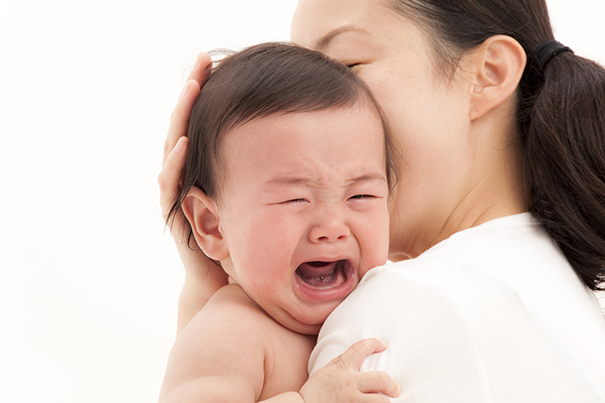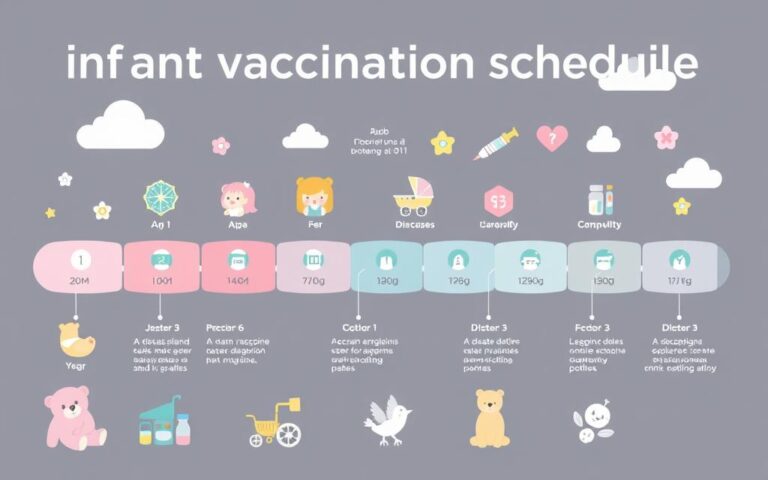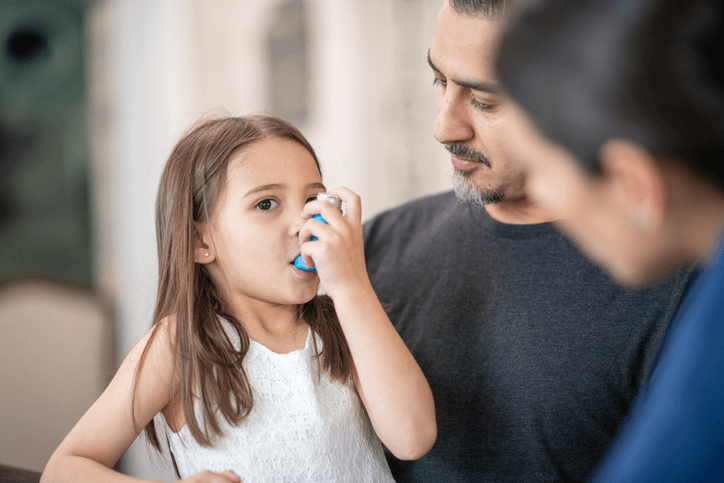Top Diaper Rash Remedies to Try at Home
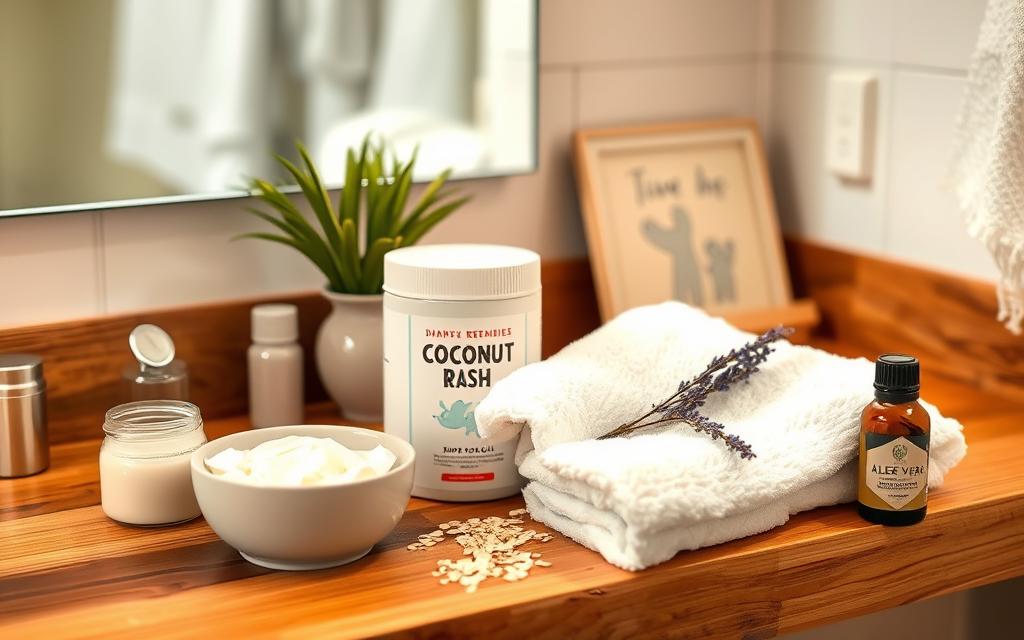
Seeing your baby with diaper rash can be tough. But, there are many ways to help. You can try natural remedies or over-the-counter treatments. It’s important to find what works best for your baby.
Choosing the right remedy is key. There are many options, making it hard to decide. Look into both natural and store-bought remedies to find the best one for your baby.
Knowing what causes diaper rash helps you prevent it. With the right remedies and steps, your baby can feel better. Whether you choose natural remedies or store-bought ones, there are many ways to soothe your baby’s skin.
Key Takeaways
- Diaper rash remedies can provide relief and comfort to your baby’s irritated skin
- Natural diaper rash remedies can be a gentle and effective solution
- The best diaper rash treatment will depend on your baby’s unique needs and preferences
- Preventative measures can help reduce the occurrence of diaper rash
- Exploring different diaper rash remedies can help you find the one that works best for your baby
- Combining diaper rash remedies with preventative measures can help keep your baby’s skin healthy and happy
Understanding Diaper Rash: Causes and Symptoms
Diaper rash is a common problem for many babies. It causes discomfort and distress. To prevent and treat it, knowing its causes and symptoms is key. Home remedies can help, but knowing when to use cream and how to prevent it is also important.
Several factors can lead to diaper rash, like skin irritation, friction, and infections. Diaper rash cream can soothe and protect the skin. But, good hygiene and regular diaper changes are also vital to prevent it from getting worse.
Common Triggers of Diaper Rash
- Friction and irritation from diapers
- Bacterial or fungal infections
- Allergies to diaper materials or laundry detergent
- Prolonged exposure to urine and feces
Signs Your Baby Has Diaper Rash
If your baby has diaper rash, look for redness, inflammation, and discomfort. In severe cases, it can blister or get infected. If unsure about prevention or treatment, always consult your pediatrician.
When to Consult a Doctor
If your baby’s rash doesn’t get better or gets worse, see a doctor. They can guide on prevention and recommend treatment. This will help your baby feel better and happy again.
| Cause | Symptom | Treatment |
|---|---|---|
| Friction and irritation | Redness and inflammation | Diaper rash cream and frequent diaper changes |
| Bacterial or fungal infections | Blistering or discharge | Antibiotic or antifungal medication |
| Allergies to diaper materials | Rash or itching | Switch to hypoallergenic diapers |
Essential Diaper Rash Prevention Tips
Preventing diaper rash is often more effective than treating it. To minimize the risk of diaper rash, it’s important to be proactive. This means frequent diaper changes, a proper diaper fit, and using barrier creams to protect your baby’s skin. These simple steps can greatly reduce the chance of diaper rash and keep your baby happy.
Some key strategies for preventing diaper rash include:
- Changing diapers frequently to prevent moisture buildup
- Using gentle, fragrance-free cleansers and wipes
- Applying a thin layer of barrier cream or ointment to protect the skin
- Allowing the diaper area to air dry to reduce moisture
When it comes to diaper rash remedies for babies, prevention is key. By taking proactive steps, you can avoid the need for diaper rash remedies for babies and keep your baby’s skin healthy. Preventing diaper rash requires attention to detail and proper diaper care. With the right approach, you can minimize the risk of diaper rash and ensure your baby’s comfort and well-being.
By following these essential tips and being mindful of your baby’s unique needs, you can effectively prevent diaper rash. Remember, a proactive approach to preventing diaper rash is always the best course of action. With the right strategies, you can minimize the risk of diaper rash and ensure your baby’s comfort and well-being.
Natural Diaper Rash Remedies That Really Work
Many parents choose natural remedies for diaper rash instead of harsh chemicals. These natural options can soothe and heal the skin. They are often found in most homes and can offer quick relief.
Popular natural remedies include coconut oil, baking soda baths, and apple cider vinegar solutions. They help reduce inflammation, fight bacteria, and promote healthy skin. For instance, coconut oil moisturizes the skin, while baking soda baths neutralize skin pH and reduce irritation.
Coconut Oil Applications
Coconut oil is excellent for diaper rash due to its anti-inflammatory and antimicrobial properties. It can be applied directly to soothe and moisturize the skin. It also helps prevent diaper rash.
Baking Soda Baths
Baking soda baths are effective for diaper rash. They neutralize skin pH and reduce irritation. To use, add one tablespoon of baking soda to a warm bath and soak for 10-15 minutes.
Apple Cider Vinegar Solutions
Apple cider vinegar solutions treat diaper rash by fighting infections and promoting healthy skin. Mix one tablespoon of apple cider vinegar with one cup of water. Apply it to the affected area with a soft cloth.
Breast Milk Treatment
Breast milk is a natural remedy for diaper rash. It has antibacterial and anti-inflammatory properties. Apply a few drops of breast milk to the affected area with a soft cloth.
Best Over-the-Counter Diaper Rash Treatments
Over-the-counter diaper rash treatments can be a big help. A diaper rash cream is often the first thing parents try. It’s important to pick the right one for your baby’s needs.
There are many treatments out there. You can find zinc oxide creams, petroleum-based products, and medicated ointments. These can soothe and heal the rash. A good cream should be gentle and easy to apply.
Zinc Oxide Creams
Zinc oxide creams are a favorite for diaper rash. They create a barrier to protect the skin. These creams are often fragrance-free and safe for sensitive skin.
Petroleum-Based Products
Petroleum-based products, like petroleum jelly, can also help. They keep moisture in and protect the skin. But, they might not be as breathable, so use them carefully.
Medicated Ointments
For serious diaper rash, medicated ointments might be needed. These ointments have ingredients like hydrocortisone to reduce inflammation. But, use them as directed to avoid side effects.
When picking a treatment, read the label well. Look for products made for your baby’s age and skin type. The right cream can soothe and heal your baby’s skin, making them more comfortable.
Quick-Acting Overnight Diaper Rash Solutions
When diaper rash pops up suddenly, it’s key to have fast-acting diaper rash remedies ready. Parents can apply a thick layer of petroleum jelly or zinc oxide cream. This helps soothe and protect the skin.
There are also overnight diaper rash solutions to lessen the rash’s impact. A warm bath before bed can clean and soothe the skin. It also helps the baby relax and reduces irritation.
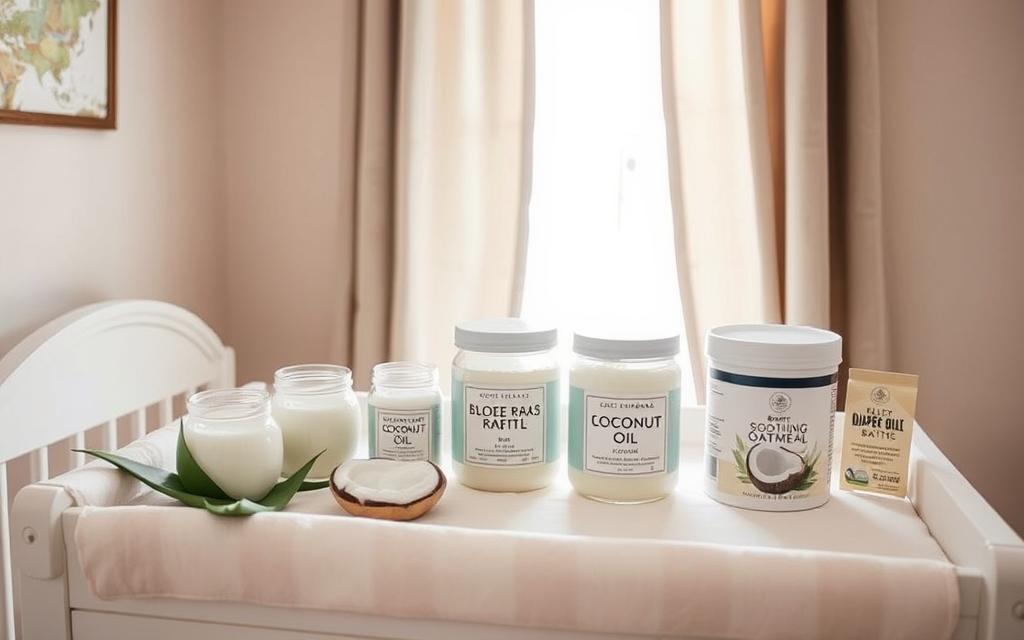
- Changing the baby’s diaper often to stop moisture buildup
- Using a diaper cream or ointment with aloe vera or vitamin E
- Keeping the baby’s skin clean and dry, mainly in the diaper area
By following these tips and using fast-acting diaper rash remedies and overnight diaper rash solutions, parents can lessen diaper rash. This promotes healthy, comfy skin for their baby.
Proper Diaper-Changing Techniques for Rash Prevention
Every parent needs to know how to prevent diaper rash. It begins with learning the right diaper-changing techniques. By following simple steps, you can lower the risk of diaper rash and keep your baby’s skin healthy.
Cleanliness and gentleness are key during diaper changes. Make sure you have diapers, wipes, and diaper cream ready. Knowing what not to do is also important. Avoiding harsh products and not cleaning well can irritate the skin.
Step-by-Step Guide
To change a diaper right and prevent rash, follow these steps:
- Prepare all the necessary supplies before starting the diaper change.
- Gently lift the baby’s legs and remove the soiled diaper.
- Clean the area with mild wipes, paying extra attention to the folds of the skin.
- Apply a thin layer of diaper cream to protect the skin.
- Fasten the new diaper securely but not too tight.
Essential Supplies
Having a diaper cream is essential for preventing rash. Choose one with zinc oxide for its moisture barrier and skin soothing properties. With the right supplies and techniques, you can keep your baby rash-free and comfortable.
Special Care for Sensitive Skin Rashes
Babies with sensitive skin need extra care to avoid and treat diaper rash. Diaper rash remedies for sensitive skin must be gentle and not irritate. When picking a remedy, think about the ingredients and how they might affect your baby’s skin.
Some good diaper rash remedies for sensitive skin include:
- Using fragrance-free and hypoallergenic products
- Applying a thin layer of petroleum jelly to protect the skin
- Keeping the diaper area clean and dry
It’s also key to watch what products you use on your baby’s skin.
Always read the labels and look for products that are designed for sensitive skin
. By being careful, you can stop diaper rash and keep your baby’s skin healthy and happy.
Remember, every baby’s skin is unique. It might take some trying to find the best diaper rash remedies for sensitive skin for your baby. But with patience and effort, you can make your baby feel better and rash-free.
| Remedy | Benefits |
|---|---|
| Coconut oil | Soothes and moisturizes the skin |
| Baking soda baths | Helps to neutralize pH and reduce irritation |
Diet Modifications That Help Prevent Diaper Rash
A well-balanced diet is key to preventing diaper rash. Some foods can make it worse, while others can help. It’s important for parents to know how diet affects diaper rash.
Focus on foods that are good for the skin when trying to prevent diaper rash. Eating fruits, vegetables, and whole grains helps the skin stay healthy. Foods high in sugar, salt, and unhealthy fats can make diaper rash worse.
Foods to Avoid
- Citrus fruits and juices, which can irritate the skin and worsen diaper rash
- Spicy or acidic foods, which can cause stomach upset and lead to diaper rash
- Processed meats and dairy products, which can be high in salt and sugar
Beneficial Dietary Changes
Simple diet changes can help prevent diaper rash. Adding foods rich in omega-3, like salmon and flaxseeds, can reduce inflammation. Also, include probiotic-rich foods like yogurt and kefir to support your baby’s gut and skin.
These dietary changes can help prevent diaper rash and improve your baby’s skin health. Always talk to your pediatrician before changing your baby’s diet.
| Foods to Eat | Foods to Avoid |
|---|---|
| Fruits, vegetables, whole grains | Citrus fruits, spicy foods, processed meats |
| Omega-3 rich foods, probiotic-rich foods | High-sugar, high-salt foods |
Creating the Perfect Diaper Rash Care Kit
Having the right supplies is key when preparing for diaper rash. A well-stocked diaper rash care kit helps parents care for their baby’s sensitive skin. It makes a big difference.
To make the perfect diaper rash care kit, include these essential items:
- Gentle cleansers and wipes
- Diaper rash creams and ointments
- Soft, breathable clothing
- A change pad or mat for easy cleanups
These items help prevent and treat diaper rash. They reduce discomfort and infection risk for your baby. Always choose gentle, fragrance-free products for sensitive skin.
With some planning, parents can make a great diaper rash care kit for their baby. Being proactive and prepared keeps their baby’s skin healthy and happy.
Conclusion: Making the Right Choice for Your Baby’s Comfort
When dealing with diaper rash, your baby’s comfort is key. Knowing the causes, symptoms, and treatments helps you make good choices. You can choose from natural remedies, over-the-counter products, or prevention methods. The most important thing is to find what works best for your baby.
It’s vital to pick the right diaper rash remedy for your baby’s health and happiness. This article has given you the tools to tackle diaper rash and keep your baby comfortable. Always choose what makes your baby happy and comfortable. Trust your instincts to make the best decisions for your family.

